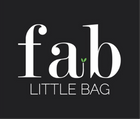
What Is Menstrual Activism And What Are Its Cultural Impacts? By Eleanor Luxton.
Menstrual activism – a global feminist movement which aims to challenge menstrual taboos and ensure that everyone who menstruates has access to dignified and appropriate healthcare. With some people likening our current social media-savvy era of period positivity and empowerment to the sexual liberation of the 1960s, it’s more important than ever that we understand what barriers women still face. This article will shed some light on the truth surrounding the ‘crimson tide’ of activism, why and how menstrual shaming still persists, and how menstrual activism looks different around the world.
What Are The Origins Of Menstrual Activism?
Despite what many of us assume, menstrual activism is not new but rooted in second wave feminism, specifically its rejection of body shaming and the negative stereotypes attached to periods (e.g., that they’re ‘dirty’ or a ‘curse’). Some environmentalists later took up the cause of reproductive rights, as single use plastics and the dangers of Toxic Shock Syndrome (TSS) became more apparent during the 1970s. More recently, the fight for period equality has put Scotland in the public health history books, as The Period Products Act (2021) requires councils, schools and colleges to provide free sanitary items for all those in need. And periods keep getting thrown into the spotlight, with the Manchester City Women’s Football team among an increasing number of sports clubs announcing that their players would no longer be expected to play in white shorts (we’ve written about periods in sport before). Despite these positive steps, and growing education about menstrual issues in schools, menstrual shaming remains a damaging reality for many women.
What Is Menstrual Shaming?
Menstrual shaming, misinformation and stigma is a serious issue which a 2018 UN report said contributed to serious human rights concerns for women and girls. Menstrual shame can be linked to lost wages and schooling, as women experience limited access to sanitation facilities in places of education and work. In addition, myths surrounding menstruation don’t just lead to ridicule and embarrassment for women, but actively restrict their life chances.
In many countries, menarche is associated with a woman’s readiness for childbirth and marriage, which contributes towards high-risk adolescent pregnancies and the spread of STDs (including HIV/AIDS). Such issues are not confined to the Global South, as even the way we speak about periods can be highly negative. Women, including myself, have a tendency to see our bodies as flawed, ailing and barriers to fulfilling lives, even as menstruation is natural and embedded in cultural practices. This can be a result of poor knowledge about our bodies during the stages of the menstrual cycle, as well as societal norms that portray women as irrational, emotional and out of control when they are menstruating. Whilst we must be sensitive to the gruelling menstrual experiences of some LGBTQ+ people, and those with menstrual disorders, such as endometriosis, FabLittleBags can alleviate menstrual shaming. By providing you with a discreet disposal option that protects both the environment and your dignity, you can avoid having to awkwardly wrap your used pad or tampon in toilet roll.
3 Examples Of Period Activism From Around The World
1.Pad-making machines
In 2018, the documentary ‘Period. End of Sentence’ was released on Netflix. It documents the quiet revolution of sanitary pad-making machines being distributed to rural Indian villages. Manually operated and using sustainable materials, the network of enterprises empowers women financially and socially in areas where a lack of toilets can leave them vulnerable to sexual violence, and forced to use rags to absorb period blood.
3.Charities and Non-Governmental Organisations (NGOs)
AFRIpads produces and distributes washable, reusable pads and has so far reached over 3.5 million women and girls. The pads are stretchier and tend to fit better than disposable options, offering protection for at least 12 months. This saves girls money, and the Research and Development team at AFRIpads can design pads for all kinds of development and humanitarian contexts. AFRIpads’ “GIRLTALK” comic book is also important, as it uses clear and accessible language to teach girls about how their bodies change during puberty
2.Changing laws
But it’s not only the distribution of period products which is considered period activism – legislation is key too. Spain has recently led the way by approving menstrual leave. This could help those suffering from extreme cramps and bleeding (e.g., PCOS sufferers), although others argue that it may stigmatise women too. This demonstrates how acknowledging and addressing menstrual pain and discomfort is vital at all scales, especially when it comes to changing social norms surrounding periods. Changing laws surrounding menstruation can also be a first step in promoting equality and inclusion.
Change Is Beginning To Happen
It is clear that governments must make more accommodations for menstruation, crucially to commit more money, time, and expertise to better understanding women’s menstrual health. National goals to improve sustainability can be partly achieved by making reusable products like period underwear and cups – as well as FabLittleBags – more affordable, or even free. By following the lead of countries like Scotland, who passed an Act providing free period products to all in 2020, governments can effectively eradicate period poverty and help reduce the taboo surrounding menstruation.
